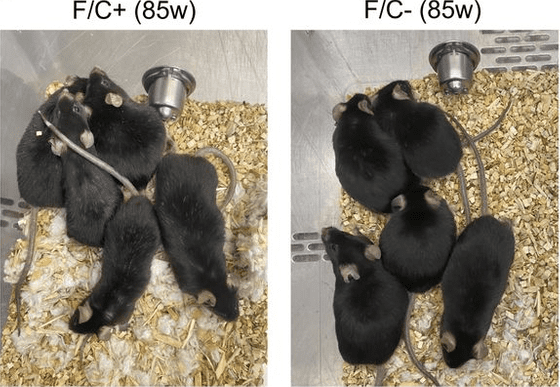Research results show that reducing folic acid intake may extend lifespan

Late-life dietary folate restriction reduces biosynthesis without compromising healthspan in mice | Life Science Alliance
https://www.life-science-alliance.org/content/7/10/e202402868
Reduction in folate intake linked to healthie | EurekAlert!
https://www.eurekalert.org/news-releases/1053444
Reduced folate intake enhances metabolic plasticity in aged mice
https://www.news-medical.net/news/20240806/Reduced-folate-intake-enhances-metabolic-plasticity-in-aged-mice.aspx
Folic acid, sometimes called vitamin B9, is an essential nutrient for red blood cell production and DNA replication, and is particularly important during periods of rapid growth such as during infancy. Since a deficiency of folic acid in the fetus can lead to a risk of congenital anomalies, the Ministry of Health, Labor and Welfare recommends that women planning to become pregnant consume at least 0.4 mg (400 µg) of folic acid per day.
On the other hand, folate antagonists, which suppress the metabolism of folic acid, are used to treat diseases involving abnormal cell proliferation, such as cancer, rheumatoid arthritis, and psoriasis.

In order to investigate the long-term effects of folic acid, the need for which varies greatly depending on the time of year and health condition, Michael Polymenis and his team at Texas A&M Agrilife Research conducted experiments in which they administered
In addition, a study in which elderly mice were fed a diet low in folic acid found that it extended their health span without causing the negative effects of folic acid deficiency, such as anemia. Specifically, the elderly mice in the folic acid restricted group did not develop symptoms of aging, such as weakness or difficulty walking, and they also had less graying of their fur than mice on a standard diet.
In the photo below, the left is a male mouse on a standard diet, and the right is a mouse on a folic acid restricted diet. The mouse on the folic acid-rich diet has slightly grayer, shaggy fur, while the mouse on the folic acid restricted diet has dark, dark fur. While shiny fur doesn't necessarily mean a mouse will live longer, the team said the degree of graying of the mouse's fur is an indicator of its health and longevity.

This study suggests that nutrients that are very important in the early stages of development are not as necessary in later life, and that limiting their intake may actually be beneficial for health. The idea that the effects of certain factors differ depending on the life stage is called
'Our data suggest the exciting possibility that the amount of folate needed to promote health may vary at different stages of life and that reduced folate intake may be beneficial later in life,' the team wrote in their paper.

However, the researchers caution that this study was primarily designed to target the intake of fortified foods and supplements for people who do not need as much folic acid, and does not recommend eliminating folic acid-containing foods from the diet.
'Our findings suggest that older people may need less folic acid than previously thought,' said Polymenis. 'There is still a lot of research to be done in this area, and we would not recommend that anyone eliminate folic acid from their diet.'
Related Posts:
in Science, Posted by log1l_ks







